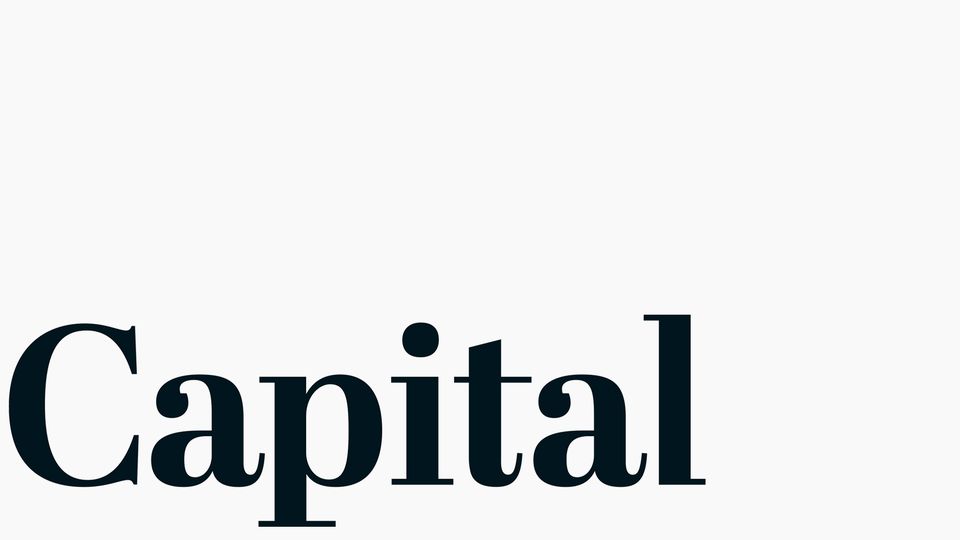Companies need Generation Z to be successful in the long term. But a survey shows that HR managers think their salary demands are too high and have already “ghosted” applicants

This is original content from the Capital brand. This article will be available for ten days on stern.de. After that, you will find it exclusively on capital.de. Capital, like the star to RTL Germany.
In many sectors, the shortage of staff has long been a problem. Companies are increasingly competing for young people who are completing their training and entering the job market while the baby boomers are slowly leaving it. “Anyone who doesn’t focus on Gen Z now will soon simply have no more workers in the company,” says HR expert Eva Stock.
“Gen Z” includes all those born between the mid-1990s and 2010. They are therefore the first to have grown up entirely in the digital world. Many of them know exactly how they envision their career and what is important to them in the application process, according to a survey by the career platform Job Teaser and the French EDHEC Business School. HR departments, on the other hand, often have difficulty finding suitable applicants – especially because the salary expectations of both sides often do not match.
Gen Z demands too much salary and has too little experience
A third of the HR managers surveyed believe that it has become more complicated to recruit young talent over the past three years. Over half (55 percent) say that difficulties include the fact that there are not enough qualified candidates. 46 percent also say that “too high salary requirements” are a problem, 40 percent criticize a lack of flexibility and 36 percent even criticize a lack of experience.
Young people are crucial for the long-term success of companies. Eight out of ten HR managers think it is just as important or even more important to recruit them this year than last year. “In my opinion, this shows that awareness of the importance of young specialists is growing, even if financial resources are not necessarily being adjusted,” says Stock from the tech agency Comspace. In the outside world, experienced specialists often appear to be the best choice, but young talent is crucial for long-term success.
According to the results, in order to attract them, companies should primarily mention the salary in the job advertisement (49 percent) and focus on quick recruitment with few interviews (43 percent). The 18 to 30 year olds found these two factors particularly attractive.
Three quarters of applicants have already been “ghosted”
However, almost half of those surveyed said that the reasons for abandoning the application process were “a lack of proximity to the recruitment team” and 41 percent said that “a lack of transparency regarding remuneration”. The company’s decision-making process also took too long to reach a decision was also perceived as negative. According to the survey, the recruitment process for young applicants should not take longer than 20 days.
More than half of HR managers also admitted to having “ghosted” applicants, i.e. breaking off contact during the application process. Around three quarters of students and young professionals said the same. Such negative experiences during the application process can have consequences for companies: 69 percent of young applicants with bad experiences said that the company’s image had deteriorated for them.
In total, almost 2,000 people in Germany took part in the survey from May to June 2024. These included around 1,200 18- to 30-year-old students and young professionals, and more than 700 human resources managers from companies with ten or more employees. The samples are representative in terms of gender and region of the population, as well as region and size of the company.
Half of young applicants use AI for application documents
The survey also showed that young applicants are very clear about what they expect from their careers: around three quarters know what tasks they like or dislike, what their professional strengths and weaknesses are and what industry they would like to work in. Almost 70 percent know what career prospects there are in their chosen position.
However, the young respondents find it most difficult to estimate their expected salary: 41 percent of students and 34 percent of university graduates had no salary expectations.

What motivates Generation Z in their working lives? What companies should know now in the fight for skilled workers
19:31 min
However, more than 60 percent know how to make their CV, cover letter and references attractive to recruiters. They also use artificial intelligence for this. Almost every second person said they used it to write or improve application documents. According to the survey, more than 40 percent use it to have the most important questions in the interview listed.
Fraction of job advertisements are aimed at Generation Z
Human resources managers are also increasingly using AI. 60 percent of respondents use it to respond via email, one in two to screen resumes, and 42 percent to prepare for interviews.
However, only 22 percent of HR managers target their job advertisements specifically at Generation Z, for example by adapting to the language used by young people. The Internet shapes their information behavior, says Christian Stefan Braun from the insurance company Ergo in connection with the study. “Job advertisements should therefore be short and concise and at the same time reflect the interests and values of the target group.”
Source: Stern



